Photo: Joan Carroll
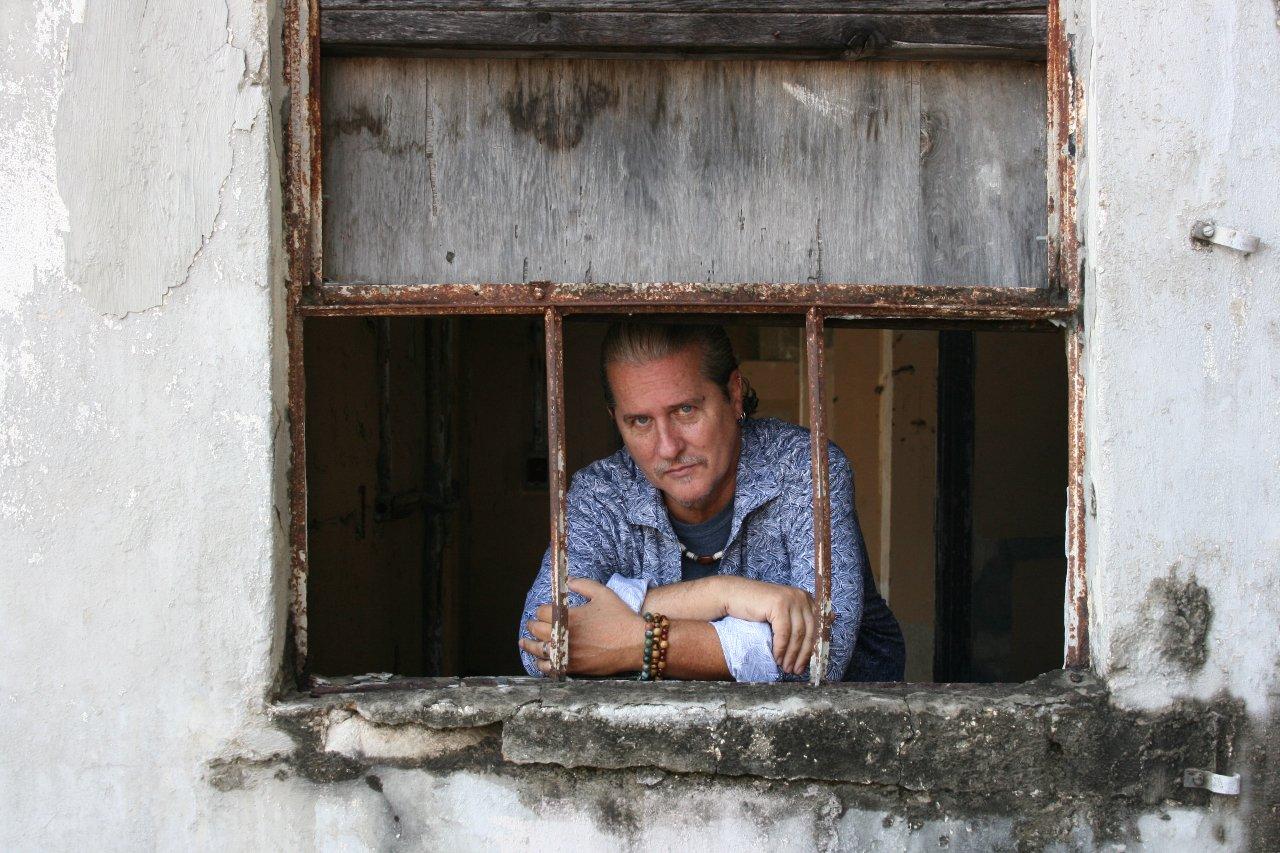
Gerry Gibbs
news
Gerry Gibbs Assembled Jazz Legends To Honor His Father's Music. The Result Contained Chick Corea's Final Recordings.
Jazz drummer Gerry Gibbs drove 15,000 miles around America to make 'Songs From My Father,' a homage to his dad Terry Gibbs’ music. One of the greats who contributed was Chick Corea—and unbeknownst to everyone, these were the last recordings he’d ever make
North, south, east and west on the interstates of a pandemic-gripped America, Gerry Gibbs drove 15,000 miles to make some music. In the evenings, he and his wife, Kyeshie, camped out in the car and dozed off to DVDs of Kojak, Starsky and Hutch and The Mod Squad. They were too apprehensive about COVID-19 to board a flight or sleep in a hotel. So, with his record label's financial assistance, they drove and drove and drove.
"I'm not touring. I'm not working. I just sit at home every day wondering what's going to happen," Gibbs told GRAMMY.com back in 2020 while driving through the middle of the desert. "Everything I ever had doesn't exist anymore." So he hurtled between New York, California, Texas and Florida throughout the first wave. "All to make this stupid record," Gibbs says in 2021, cheekily and modestly. Because what he and his associates made is a doozy.
He was driving all over creation to make Songs From My Father (released August 6), a homage to the songbook of his dad, the pioneering vibraphonist and bebop luminary Terry Gibbs. It features four permutations of his Thrasher Dream Trio, drawing from a Rolodex of cream-of-the-crop musicians: bassists Ron Carter, Christian McBride and Buster Williams, and pianists Chick Corea, Kenny Barron, Patrice Rushen, Geoff Keezer and Larry Goldings.
By now, in music, the anecdotes about recording in lockdown are starting to bleed together. Plus, jazz is a Möbius strip of lineages, so a son paying tribute to his father is as natural as can be. That said, Songs From My Father stands out for multiple reasons.
First, it sheds light on Terry, an underappreciated architect of America's music. Second, it’s a testament to Gerry's indefatigable creativity. And—perhaps most enticingly—it contains the final recordings of the late pianistic legend and 25-time GRAMMY winner Chick Corea.
Terry Gibbs with bassist Eddie Safranski and the 1953 Metronome All-Stars. Photo: PoPsie Randolph/Michael Ochs Archives/Getty Images.
The Swinging Mastery Of Terry Gibbs
At almost 97, Terry is a hilarious fount of stories, and his 2003 memoir, Good Vibes: A Life in Jazz, is a treasure trove of Brooklynite musings. The man born Julius Gubenko in 1924 had a front-row seat to bebop and big band at their peaks, playing with Benny Goodman, Buddy Rich, Ella Fitzgerald, Charlie Parker, Bud Powell, Dizzy Gillespie and scores of other household names.
Gerry was born in 1964, and his father didn’t steer him toward becoming a musician at all. "He's had his own mind since he was a kid," Terry tells GRAMMY.com. "I never told him what to like. He went from liking Buddy Rich to liking Elvin Jones, and that's a big jump going from straight-ahead to a guy who was playing pretty far out. But he liked it. That's where his head was."
Terry and Gerry Gibbs. Photo courtesy of Gerry Gibbs.
Read More: 10 Essential Cuts From Jazz Piano Great McCoy Tyner
Gerry became a music obsessive by his own volition. "You remember those blue-jean-colored folders you put all your manilla folders in when you were in class?" Gerry asks GRAMMY.com. "On the front, I would just put 'Chick Corea. Ron Carter. Freddie Hubbard. Miles Davis. John Coltrane. Kenny Barron.' And I would just stare at the names on the books and say, 'These are my heroes. These are the people I want to play with one day.'"
Terry didn't just play with the titans of bebop; he provided a platform for brilliant Black female pianists. One, Alice Coltrane (née McLeod), is experiencing an overdue reappraisal. Another, Terry Pollard—an equal talent on vibraphone who performed alongside him in swinging mallet contests—remains bizarrely obscure given her considerable skills.
About Alice Coltrane, "Before everything she had done with John, she was a swinging bebopper, playing in all these Detroit bands and in Terry Gibbs' band," saxophonist Jeff Lederer told GRAMMY.com in 2020. "She was a great, great bebopper." As for Pollard, "I feel like it's really important to acknowledge her when talking about this music," Geoff Keezer tells GRAMMY.com.
Terry Gibbs and Terry Pollard. Photo courtesy of Gerry Gibbs.
Read More: 'Ptah, The El Daoud' At 50: How Alice Coltrane Straddled Heaven And Earth
Terry played from age 12 until his retirement at 92. In that time, he made more than 90 solo recordings and was the musical director on "The Steve Allen Show" for more than 20 years. However, he's mysteriously still not an NEA Jazz Master, despite many musicians far younger than him—and with fewer bona fides—receiving the honor.
Plus, his infectious compositions, like "Kick Those Feet," "Bopstacle Course" and "Pretty Blue Eyes," aren't as widely known as they should be in the 21st century. That is, unless Gerry has something to say about it.
The Creative Whirlwind Of Gerry Gibbs
The apple doesn't fall far from the tree: Gerry Gibbs is as loquacious and driven as his father. Moreover, time is elastic on Planet Gibbs: What would typically be a half-hour conversation might stretch to more than three times that length.
"When he's explaining stuff, his mind is going 20,000 miles an hour," Patrice Rushen tells GRAMMY.com. "He might skip a lot of information that it would be of value for you to try to keep up with where he's going." For example: "'There's no bass player in this session.' [Pauses.] OK. 'Well, you'll be playing with [pianist] Larry Goldings.' [Pauses even longer.] OK? 'Larry's going to play the organ.' OK, got it. Now I'm piecing it together."
Put a man like this in pandemic house arrest, and he'll do something like write and record an entire song every day in an 18-day spree while playing all the instruments. And that's what Gerry did. He sent the resulting album, Emotional Pandemic, to 500 people on his email list. One of them happened to be Corea, who he'd been friendly with before but never worked with.
Corea took to Gerry immediately and emailed him, eager to learn about his creative process. "I was pretty freaked out," Gerry admits. "Friends of mine hadn't had time to listen to it, and here's Chick, who's so busy, and he listened to it numerous times." Gerry sent Corea his phone number; they talked for two hours and became fast friends.
"One time, at almost 3:00 in the morning, the phone rang, and it was Chick," Gerry says. "My wife sees the phone and I say, 'He must have butt-dialed me.' I answer the phone, and he says [loudly] 'Guess whooo!' I don't care. Chick could have woken me up every night, and it would be fine. It's Chick."
After Corea listened to Journey to Parts Unknown, another album Gerry made during lockdown—this one comprised of solo piano compositions—he inquired about adapting the tunes to include bass and drums.
"Then I realized, 'My label can't afford him,'" Gerry says. He offered to put his people in touch with Corea's people; Corea waved it away. "He was just like, 'No, no, no. Don't worry about that. I don't care about that. Let's just do it.'"
There was another potential wrinkle: Gerry's compositions are incredibly elaborate, so much so that Corea requested advance time with the charts. Plus, with COVID as a factor, lengthy rehearsals weren't possible. So rather than composing streamlined, improv-friendly music, Gerry decided to play his father's music instead.
"It's a tribute to my dad, but it's not a tribute because he's my dad," he says. "His music was some of the most important music for me growing up. It was my way to put my take on something that I grew up with that had a huge influence on me." While on a stroll through his neighborhood, he called everyone who ultimately would be involved with the record. They were in.
Gibbs told Corea he was going to change direction and play his father's music instead. Corea took to the idea enthusiastically, even asking to write an original song for the record: "Tango for Terry."
"All of us had so much faith in his judgment and his ability to work out the situations that were beyond everyone's expectations and experience." —Ron Carter
When it came time to track the music in various locations, none of the musicians were rusty after being housebound for months. "I was a little apprehensive about going into the studio, but I needed to play," Keezer says. "I was very happy that he called me for the project, especially with Christian on bass."
Gerry's curatorial and leaderly acumen struck all the musicians involved. "All of us had so much faith in his judgment and his ability to work out the situations that were beyond everyone's expectations and experience," Ron Carter tells GRAMMY.com. Barron adds, "Gerry is very creative in terms of coming up with different kinds of projects. It's not always the same thing, which I love about him."
For "Chick's Tune," a spin on Terry's "Hey Jim" with nine out of 10 of the musicians taking a solo, Gerry matched the tempo to a 1961 recording of his father and spliced his vibraphone solo to the music. "Gerry's very good at [working with] pre-recorded elements to play to, as far as the production side," Larry Goldings tells GRAMMY.com. "Gerry's very clever at editing."
Notably absent from his namesake song, however, was Corea.
The Final Musical Fires Of Chick Corea
By all accounts, Corea was strong and upbeat during the sessions. However, when it came time to tackle "Hey Jim," "Chick called me and said, 'I can't play on it because I'm not feeling good. I've got a pain in my ribs. Can we postpone this for three or four weeks?'" Gerry recalls. "I said, 'Of course, Chick.'"
"And then I spoke to his management," he says. "Chick was gone."
In a massive shock to the global jazz community, Corea passed away on February 9, 2021, from a rare form of cancer. He embodied energetic creativity for a musician in his autumn years; the internet was full of his recent videos and masterclasses. With about a month left, Corea got his affairs in order and wrote a statement to the world.
"I want to thank all of those along my journey who have helped keep the music fires burning bright," he said. "It is my hope that those who have an inkling to play, write, perform or otherwise, do so. If not for yourself then for the rest of us. It's not only that the world needs more artists, it's also just a lot of fun."
"My dad always said, 'People remember the very beginning, and they always remember the end. They don't always remember everything in the middle'... That's what I try to remember: What are the bookends? Are they really memorable?" —Gerry Gibbs
"I was so hurt and disappointed that, finally, I got to hook up with Chick and that we were going to get together and play after COVID," Gerry says. "It's a little eerie. When you're a little kid, you don't think, 'One day I'll play with Chick and when it happens, it'll be the last thing he'll ever do.'"
Gerry suggested they repurpose the track to be a tribute to their fallen friend. Terry agreed and proposed a new title—"Hey Chick." The music sounds as radiant, eager and playful as its namesake.
"My dad always said, 'People remember the very beginning, and they always remember the end. They don't always remember everything in the middle,'" Gerry says. "That always struck me as very important with a lot of music that I love. That's what I try to remember: What are the bookends? Are they really memorable?"
Terry and Gerry Gibbs. Photo courtesy of Gerry Gibbs.
A Father's Verdict
One critical question remains: What did Terry think of the final product?
"There's nothing greater than to hear someone play a song you wrote and interpret it their own way," he marvels. "You're talking about the heavyweights of heavyweights. Everyone is a bandleader."
"When he told me about all these guys he tried to get, I thought the COVID got to him or he was completely out of his bird!" he exclaims. "How did he get those guys, especially with this disease going around?"
Buster Williams has an answer: Despite the extraordinary circumstances, there was a "business as usual" vibe among the musicians. "We do record dates all the time, you know? You never know what's going to be the result of a record date," he tells GRAMMY.com. "You're sort of like, 'This is what I do.' But I was very pleased when I heard the complete record that they put together."
"When he told me about all these guys he tried to get, I thought the COVID got to him or he was completely out of his bird!" —Terry Gibbs
In a period of frustration over the perceived NEA Jazz Master snub, Songs From My Father proved to be a balm for the family. "[My father] said 'This is better than getting an award,'" Gerry says proudly. "He was really excited."
And while this ultimate act of paternal respect touches Terry deeply as he approaches a century on this planet, he's not going to let his son off that easily.
"I used to be a boxer," he clarifies. "I can still beat the heck out of him if I want to."
In Remembrance: Chick Corea Played In More Ways Than One
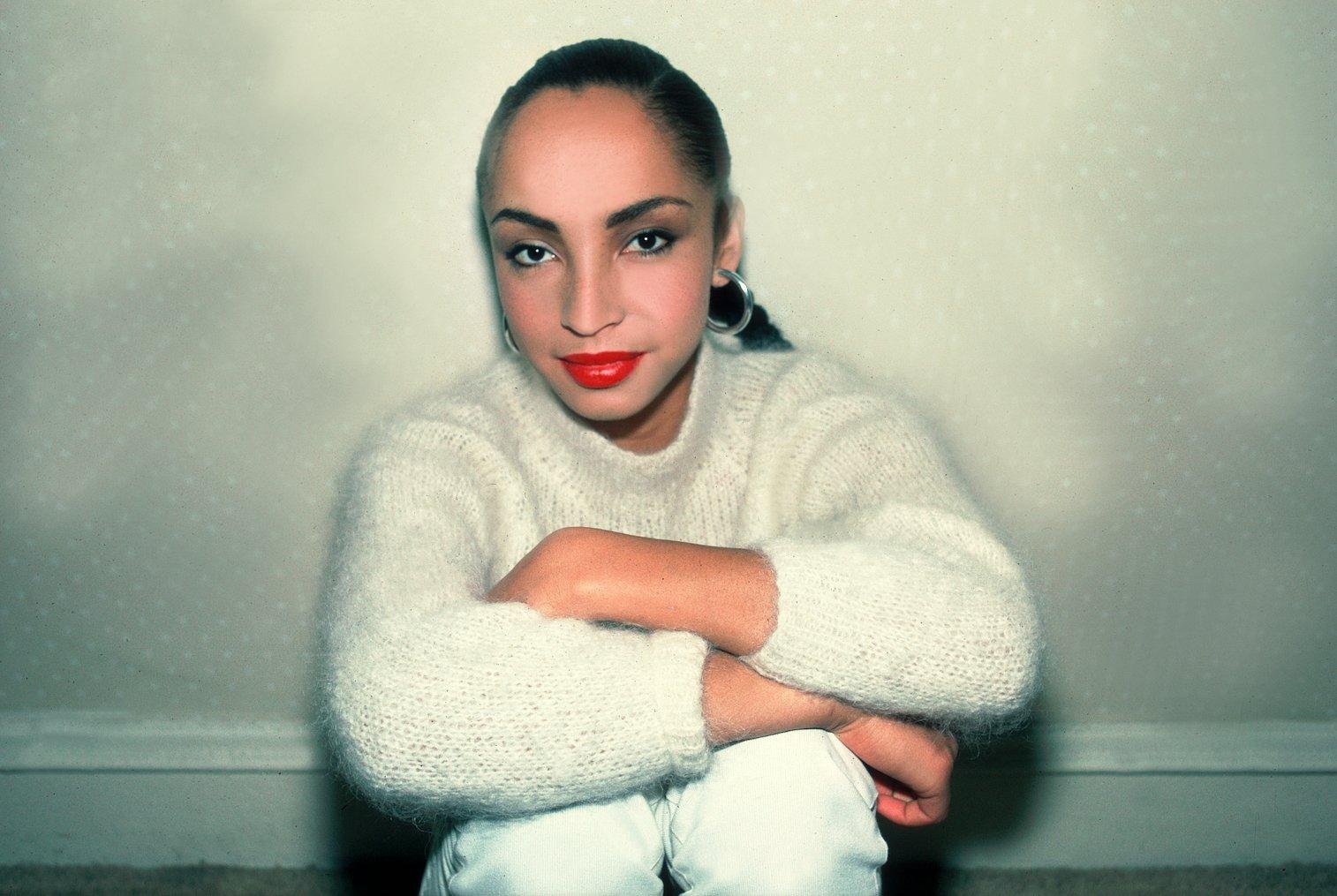
Photo: Paul Natkin/Getty Images
list
8 Ways Sade's 'Diamond Life' Album Redefined '80s Music & Influenced Culture
As Sade's masterpiece 'Diamond Life' turns 40, see how the group's debut pushed R&B forward and introduced them as beloved elusive stars.
"I only make records when I feel I have something to say," Sade Adu asserted in 2010 upon the highly anticipated release of Sade's GRAMMY-winning Soldier of Love album, which arrived after a 10-year hiatus. "I'm not interested in releasing music just for the sake of selling something. Sade is not a brand."
This lifetime of dedication toward achieving musical excellence helped Sade — vocalist Adu, bassist Paul S. Denman, keyboardist Andrew Hale, and guitarist/saxophonist Stuart Matthewman — gain prominence in the mid-80s, also garnering enormous respect from fans, critics, and peers alike. Formed in 1982, the English band is one of the few acts that can still be met with a hungry audience after disappearing from the spotlight for multiple years.
In an industry where churning out a new body of work is expected every couple of years, the four meticulous members of Sade move on their own time, putting out a mere six studio albums since 1984. Every project becomes more exquisite than the last, but it all began 40 years ago with Sade's illustrious debut album, Diamond Life. Ubiquitous hits like "Smooth Operator" and "Your Love Is King" appealed to listeners young and old — offering a unique blend of R&B, jazz, soul, funk, and pop that birthed a new sound and forced the industry to take notes from the jump.
As Sade's Diamond Life celebrates a milestone anniversary, here's a look at how the album helped push R&B forward, and why it's just as relevant today.
It Helped Set Off The "Quiet Storm" Craze
By mid-1984, Michael Jackson, was riding high off of winning the most GRAMMYs in a single night (including Album Of The Year) for his blockbuster album Thriller, Madonna celebrated her first top 10 hit with "Borderline," and Prince's Purple Rain was just days away from its theatrical release. Duran Duran, Culture Club, Billy Idol, and the Police were mainstays, while "blue-eyed soul" in particular had also hit an all-time high thanks to Hall and Oates, Wham, Simply Red, and others. What's more, many Black artists like Lionel Richie and Whitney Houston opted for more of a pop sound to appeal to broader audiences during MTV's golden era.
Diamond Life was refreshing at the time, as it fully embraced soul and R&B. The album offered a chic sophistication amid the synth-heavy pop and rock music that ruled the charts.
Singles like "Your Love Is King" and "Smooth Operator" introduced jazz elements into mainstream radio. In turn, Sade helped usher in the "quiet storm" genre — R&B music at its core, with strong undertones of jazz for an ultra-smooth sound. Sade and Diamond Life also laid some of the groundwork for neo-soul, which saw a surge in the '90s à la Lauryn Hill, Maxwell, and Erykah Badu.
It Made GRAMMY History
In the 65-year history of the GRAMMYs, a small number of Nigerian artists, including Burna Boy and Tems, have won a golden gramophone. In 1986, a then 27-year-old Sade Adu made history as the first-ever Nigerian-born artist to win a GRAMMY when she and her band was crowned Best New Artist at the 29th GRAMMYs. Still, Billy Crystal and Whoopi Goldberg had to accept the award on Sade's behalf — signaling Adu's elusive nature as she rarely attends industry events or grants interviews.
Since then, Sade has gone on to earn three more GRAMMYs, including Best Pop Vocal Album in 2001 for their fifth studio album, Lovers Rock. The win signified their staying power in the new millennium.
It Birthed The Band's Signature Song…
While Diamond Life spawned timeless hits like "Your Love Is King" and "Hang On to Your Love," "Smooth Operator" became the album's highest-charting single — and remains the most iconic song in their catalog. The seductive track about a cunning two-timer propelled the band into international stardom: "Smooth Operator" skyrocketed to No. 5 on the Billboard Hot 100 and hit No. 1 on the Adult Contemporary chart.
Even non-Sade fans can identify "Smooth Operator" in an instant, from Adu's unmistakable vocals to that now-iconic instrumental saxophone solo. As of press time, it boasts over 400 million Spotify streams alone, and has remained a set list staple across every one of Sade's tours.
…And It Houses Underrated Gems
"Smooth Operator" may be Sade's commercial classic, but deep cuts like "Frankie's First Affair," "Cherry Pie," and "I Will Be Your Friend" are fan favorites that embody the band's heart and soul.
"Frankie's First Affair" offers a surprisingly enchanting take on infidelity: "Frankie, didn't I tell you, you've got the world in the palm of your hand/ Frankie, didn't I tell you they're running at your command." And, it's impossible to resist the funky groove that carries standout track "Cherry Pie," which served as a catalyst for some of Sade's later, more dance-oriented hits, including "Never As Good As the First Time" and "Paradise." Some of Sade's most poignant statements about lost love, including "Somebody Already Broke My Heart" from 2000's Lovers Rock, can be traced back to "Cherry Pie."
Diamond Life's penultimate song, "I Will Be Your Friend," offers both solace and companionship — another recurring theme throughout Sade's music, from 1988's "Keep Looking" to 2010's "In Another Time."
It Was The Best-Selling Debut Album By A British Female Singer For More Than Two Decades
Sade has sold tens of millions of albums worldwide, but Diamond Life remains the band's most commercially successful LP with over 7 million copies sold. Most of Sade's other platinum-selling LPs, including Diamond Life's follow-up, 1985's Promise, boast sales between four and six million copies.
The 7 million feat helped Sade set the record for best-selling debut album by a British female singer. She held the title for nearly 25 years until Leona Lewis' 2008 album Spirit, which has sold over 8 million copies globally.
It Introduced Sade Adu As A Style Icon
When we first met Adu, her signature aesthetic consisted of a long, slicked-back ponytail, red lip, and gold hoops. Sade's impeccable style is front and center in early videos like "When Am I Going to Make a Living," in which she sports an all-white ensemble paired with a pale gray, ankle-length trench coat and loafers.
Adu rocked the model off-duty style long before it became a trend. Her oversized blazers, classic trousers, and head-to-toe denim looks were as effortless as they were chic and runway-ready — proving that less was more amid the decade of excess.
"It's now so acceptable to be wacky and have hair that goes in 101 directions and has several colours, and trendy, wacky clothes have become so acceptable that they're… conventional," Adu, who briefly worked as a fashion designer and model before pursuing music, told Rolling Stone in 1985. "I don't like looking outrageous. I don't want to look like everybody else."
It Shined A Light On Larger Societal Issues
While most of Diamond Life leans into love's ebbs and flows, a handful of tunes deal with financial strife coupled with a dose of optimism, as evidenced by "When Am I Going to Make a Living" and "Sally." The latter song characterizes the Salvation Army as a young charitable woman: "So put your hands together for Sally/ She's the one who cared for him/ Put your hands together for Sally/ She was there when his luck was running thin."
Meanwhile, Adu, a then-starving artist, scribbled down portions of "When Am I Going to Make a Living" on the back of her cleaning ticket. The soul-stirring "We are hungry, but we won't give in" refrain emerges as a powerful mantra in the face of adversity and still holds relevance in 2024. Similar themes appear throughout Sade's later work, including unemployment ("Feel No Pain"), unwanted pregnancy ("Tar Baby"), survival ("Jezebel"), prejudice ("Immigrant"), and injustice ("Slave Song").
Diamond Life closer "Why Can't We Live Together" is a well-done cover of Timmy Thomas' 1972 hit about the staggering Vietnam War deaths. The band wisely doesn't veer too far from the original recording, but Adu's distinctive contralto voice brings a haunting quality that's reminiscent of Billie Holiday.
It Ignited The Public's Ongoing Fascination With Sade Adu
Since 1984, Sade has only released six studio albums, and a remarkable 14 years have passed since the group's last offering, 2010's Soldier of Love. Ironically, that scarcity — both in terms of music and access to the artist — has actually added to Adu's appeal. Case in point: Sade's sold-out Soldier of Love Tour grossed over $50 million in 2011, and the band still brings in close to 14 million monthly listeners on Spotify.
Adu's striking beauty, mysterious persona, and knack for letting her music do all the talking has earned the admiration of her peers across genres and generations. Everyone from Beyoncé to Kanye West to Snoop Dogg have sung her praises. Drake even has two portrait-style tattoos of the singer on his torso. Prince reportedly described 1988's "Love Is Stronger Than Pride" as "one of the most beautiful songs ever." Metalheads Chino Moreno of the Deftones and Greg Puciato of the Dillinger Escape Plan have also cited Adu as inspiration — showing that her influence runs far and wide.
In 2022, reports circulated that Sade was recording new music at Miraval Studios in France. But upon Diamond Life's 40th anniversary, "Flower of the Universe" and "The Big Unknown" from the respective soundtracks to 2018 films A Wrinkle in Time and Widows stand as Sade's latest releases.
Whether fans get new music anytime soon remains to be seen, but the impressive repertoire of Adu, Denman, Hale, and Matthewman is one that aims to be truth-seeking and inspiring while exploring life's peaks and valleys. Diamond Life in particular holds up as one of the purest representations of the group's creative legacy, both commercially and musically.
From quadruple platinum status to resonating with several generations, Diamond Life will forever stand as a remarkable debut — one that continues to influence music in a multitude of ways.
Latest News & Exclusive Videos
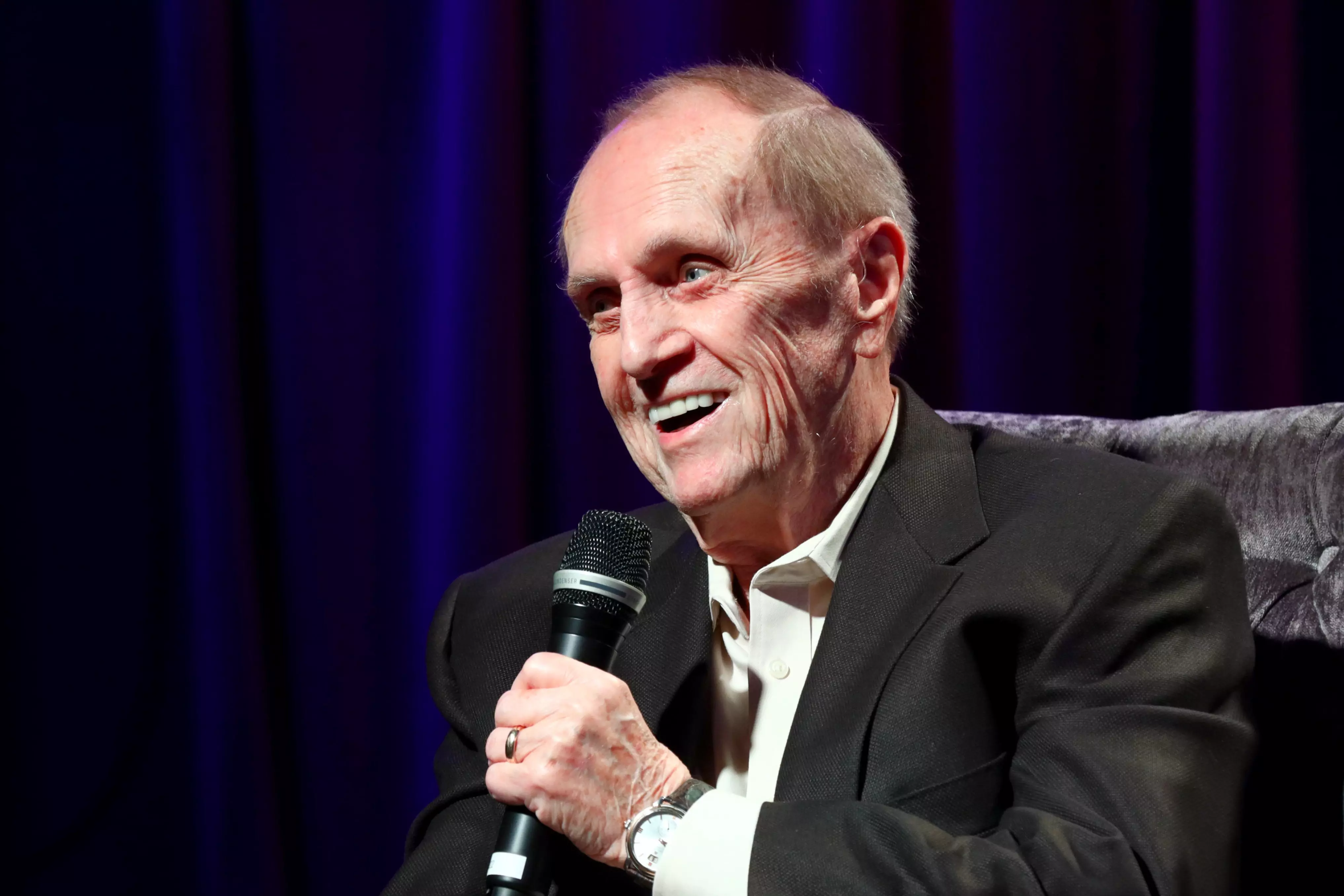
Remembering Bob Newhart, The Comic Who Made GRAMMY History With His Debut Album
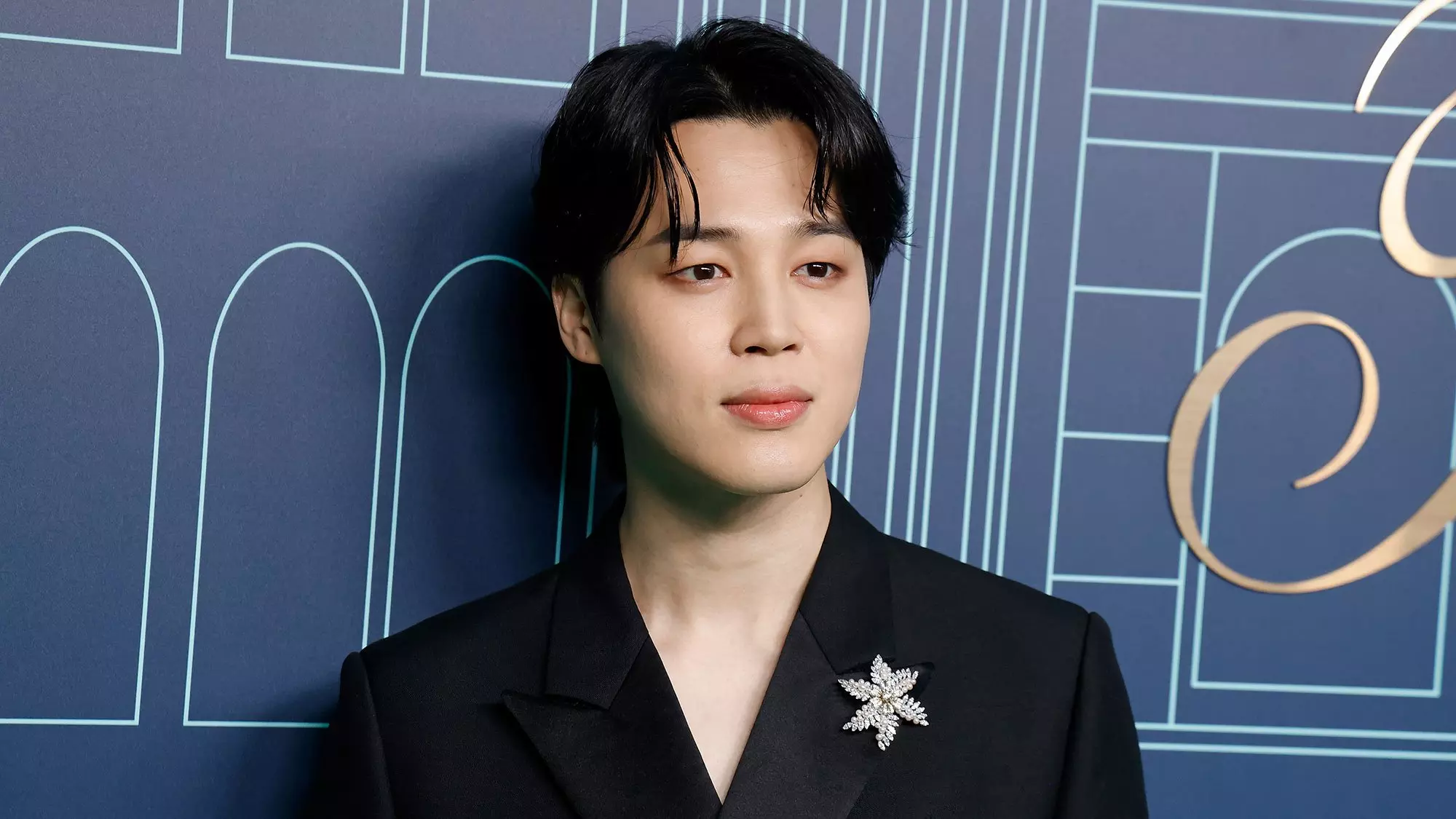
5 Takeaways from BTS Jimin's New Album, 'MUSE': A Bold Exploration Of Love And Inspiration

Ladies And Gentlemen, Glass Animals Are Floating In Space

Watch Stevie Wonder Win Album Of The Year
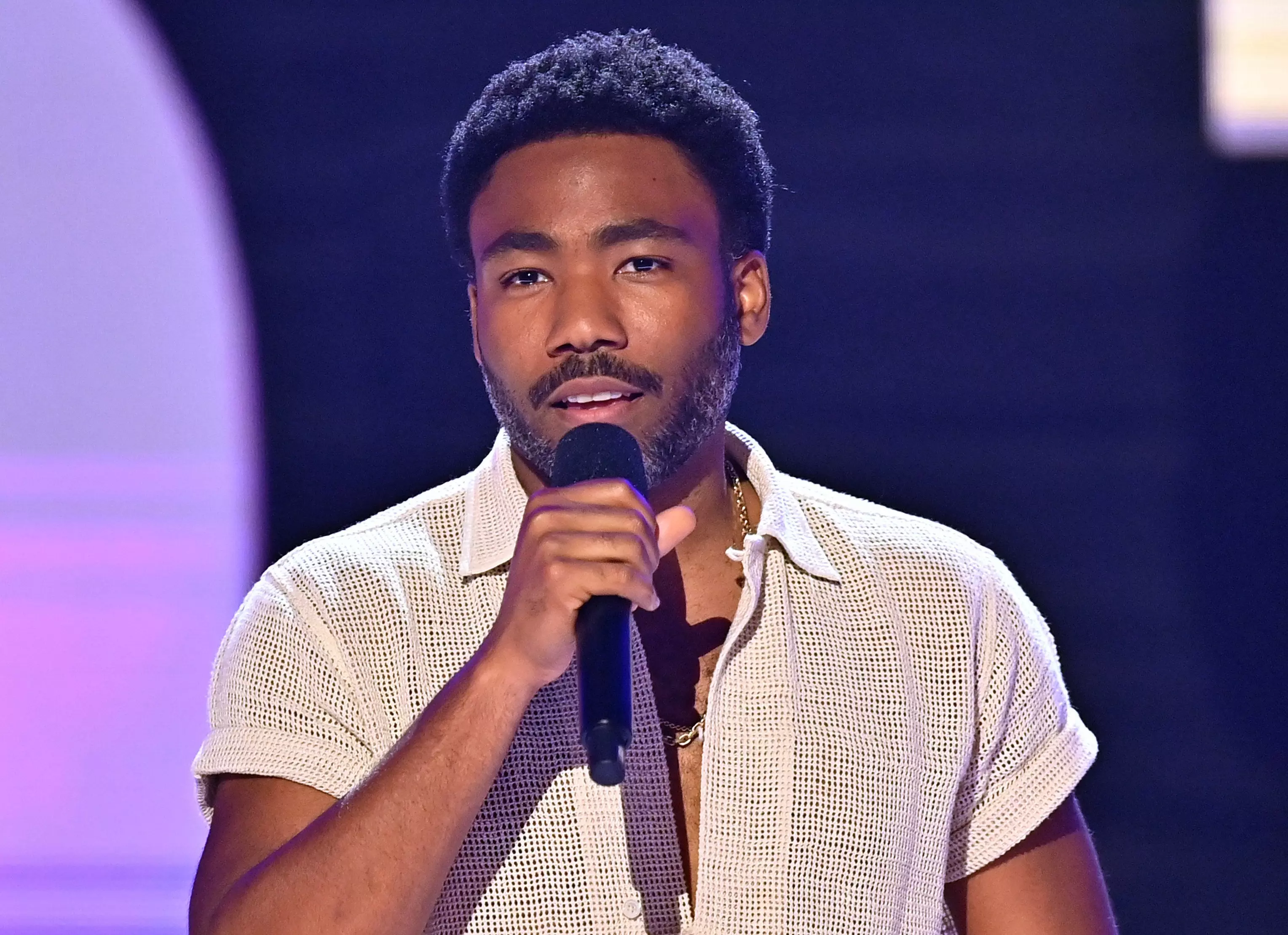
New Music Friday: Listen To New Releases From Childish Gambino, JT, Rauw Alejandro & More
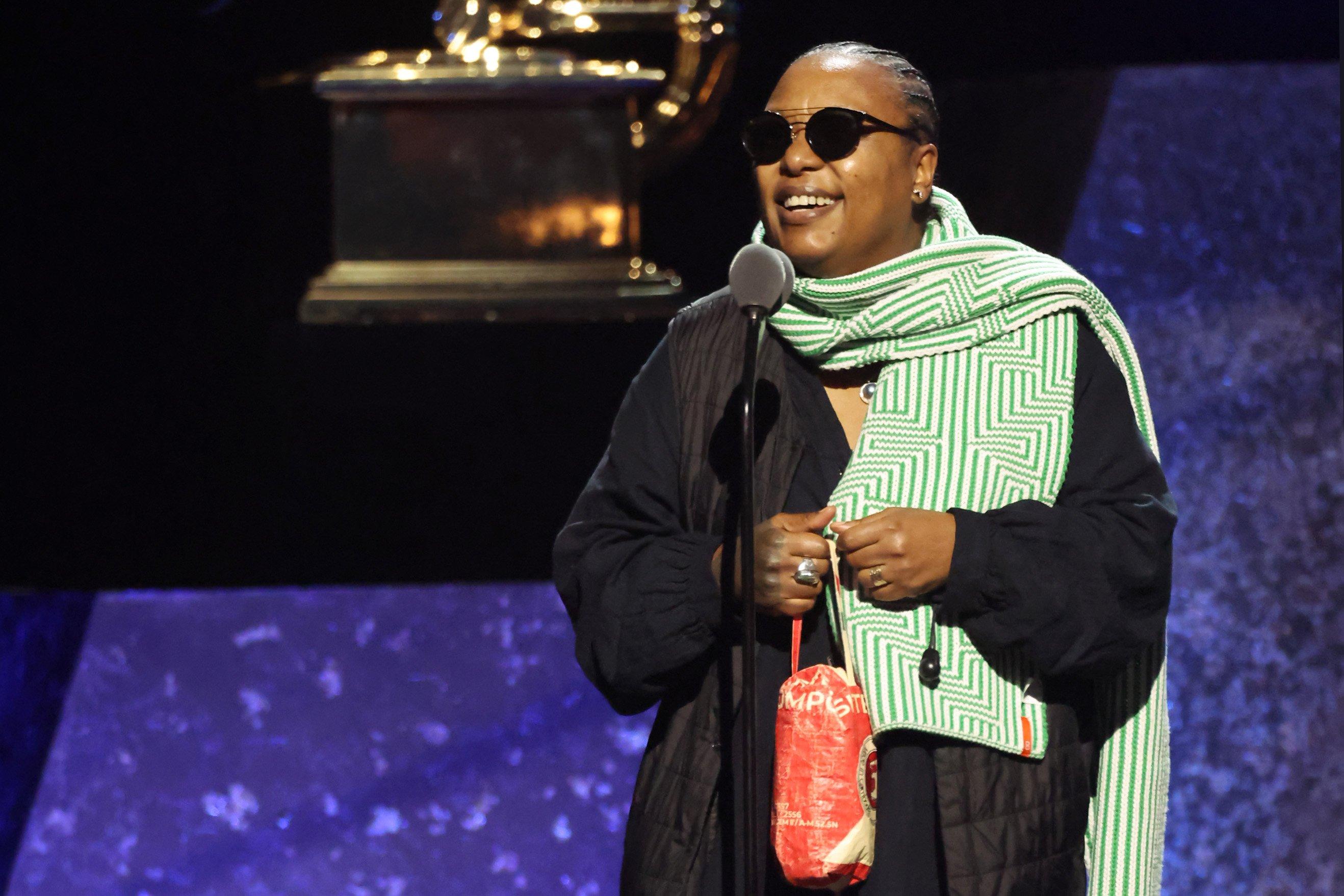
Photo: Amy Sussman/Getty Images
news
Meshell Ndegeocello Wins The First-Ever GRAMMY For Best Alternative Jazz Album At The 2024 GRAMMYs
Meshell Ndegeocello won the first-ever GRAMMY for Best Alternative Jazz Album. Ndegeocello bested Arooj Aftab, Vijay Iyer and Shahzad Ismaily; Louis Cole; Kurt Elling, Charlie Hunter and SuperBlue; and Cory Henry.
Meshell Ndegeocello won the first-ever GRAMMY for Best Alternative Jazz Album at the 2024 GRAMMYs.
The album bested Arooj Aftab, Vijay Iyer and Shahzad Ismaily's Love in Exile; Louis Cole's Quality Over Opinion; Kurt Elling, Charlie Hunter and SuperBlue's SuperBlue: The Iridescent Spree; and Cory Henry's Live at the Piano.
In her acceptance speech, the two-time GRAMMY winner and 12-time nominee thanked Don Was, the president of Blue Note Records, as well as other colleagues and loved ones — including her two sons. “I hope I haven’t forgotten anybody,” Ndegeocello graciously said at the end, and invoked an elder of the music: “Oliver Lake, this is for you.”
Keep watching this space for more information about the 2024 GRAMMYs!
A Year In Alternative Jazz: 10 Albums To Understand The New GRAMMYs Category

Photo: Shervin Lainez
list
A Year In Alternative Jazz: 10 Albums To Understand The New GRAMMYs Category
"Alternative jazz" may not be a bandied-about term in the jazz world, but it's a helpful lens to view the "genre-blending, envelope-pushing hybrid" that defines a new category at the 2024 GRAMMYs. Here are 10 albums from 2023 that rise to this definition.
What, exactly, is "alternative jazz"? After that new category was announced ahead of the 2024 GRAMMYs nominations, inquiring minds wanted to know. The "alternative" descriptor is usually tied to rock, pop or dance — not typically jazz, which gets qualifiers like "out" or "avant-garde."
However, the introduction of the Best Alternative Jazz Album category does shoehorn anything into the lexicon. Rather, it commensurately clarifies and expands the boundaries of this global artform.
According to the Recording Academy, alternative jazz "may be defined as a genre-blending, envelope-pushing hybrid that mixes jazz (improvisation, interaction, harmony, rhythm, arrangements, composition, and style) with other genres… it may also include the contemporary production techniques/instrumentation associated with other genres."
And the 2024 GRAMMY nominees for Best Alternative Jazz Album live up to this dictum: Arooj Aftab, Vijay Iyer and Shahzad Ismaily's Love in Exile; Louis Cole's Quality Over Opinion; Kurt Elling, Charlie Hunter and SuperBlue's SuperBlue: The Iridescent Spree; Cory Henry's Live at the Piano; and Meshell Ndegeocello's The Omnichord Real Book.
Sure, these were the standard bearers of alternative jazz over the past year and change — as far as Recording Academy Membership is concerned. But these are only five albums; they amount to a cross section. With that in mind, read on for 10 additional albums from 2023 that fall under the umbrella of alternative jazz.
Allison Miller - Rivers in Our Veins
The supple and innovative drummer and composer Allison Miller often works in highly cerebral, conceptual spaces. After all, her last suite, Rivers in Our Veins, involves a jazz band, three dancers and video projections.
Therein, Miller chose one of the most universal themes out there: how rivers shape our lives and communities, and how we must act as their stewards. Featuring violinist Jenny Scheinman, trumpeter Jason Palmer, clarinetist Ben Goldberg, keyboardist and accordionist Carmen Staff, and upright bassist Todd Sickafoose — Rivers in Our Veins homes in on the James, Delaware, Potomac, Hudson, and Susquehanna.
And just as these eastern U.S. waterways serve all walks of life, Rivers in Our Veins defies category. And it also blurs two crucial aspects of Miller's life and career.
"I get to marry my environmentalism and my activism with music," she told District Fray. "And it's still growing!
M.E.B. - That You Not Dare To Forget
The Prince of Darkness may have slipped away 32 years ago, but he's felt eerily omnipresent in the evolution of this music ever since.
In M.E.B. or "Miles Electric Band," an ensemble of Davis alumni and disciples underscore his unyielding spirit with That You Not Dare to Forget. The lineup is staggering: bassists Ron Carter, Marcus Miller, and Stanley Clarke; saxophonist Donald Harrison, guitarist John Scofield, a host of others.
How does That You Not Dare To Forget satisfy the definition of alternative jazz? Because like Davis' abstracted masterpieces, like Bitches Brew, On the Corner and the like, the music is amoebic, resistant to pigeonholing.
Indeed, tunes like "Hail to the Real Chief" and "Bitches are Back" function as scratchy funk or psychedelic soul as much as they do the J-word, which Davis hated vociferously.
And above all, they're idiosyncratic to the bone — just as the big guy was, every second of his life and career.
Art Ensemble of Chicago - Sixth Decade - from Paris to Paris
The nuances and multiplicities of the Art Ensemble of Chicago cannot be summed up in a blurb: that's where books like Message to Our Folks and A Power Stronger Than Itself — about the AACM — come in.
But if you want an entryway into this bastion of creative improvisational music — that, unlike The Art Ensemble of Chicago and Associated Ensembles boxed set, isn't 18-plus hours long — Sixth Decade - from Paris to Paris will do in a pinch.
Recorded just a month before the pandemic struck, The Sixth Decade is a captivating looking-glass into this collective as it stands, with fearless co-founder Roscoe Mitchell flanked by younger leading lights, like Nicole Mitchell and Moor Mother.
Potent and urgent, engaging the heart as much as the cerebrum, this music sees the Art Ensemble still charting their course into the outer reaches. Here's to their next six decades.
Theo Croker - By The Way
By The Way may not be an album proper, but it's still an exemplar of alternative jazz.
The five-track EP finds outstanding trumpeter, vocalist, producer, and composer Croker revisiting tunes from across his discography, with UK singer/songwriter Ego Ella May weaving the proceedings with her supple, enveloping vocals.
Compositions like "Slowly" and "If I Could I Would" seem to hang just outside the reaches of jazz; it pulls on strings of neo soul and silky, progressive R&B.
Even the music video for "Slowly" is quietly innovative: in AI's breakthrough year, machine learning made beautifully, cosmically odd visuals for that percolating highlight.
Michael Blake - Dance of the Mystic Bliss
Even a cursory examination of Dance of the Mystic Bliss reveals it to be Pandora's box.
First off: revered tenor and soprano saxophonist Michael Blake's CV runs deep, from his lasting impression in New York's downtown scene to his legacy in John Lurie's Lounge Lizards.
And his new album is steeped in the long and storied history of jazz and strings, as well as Brazilian music and the sting of grief — Blake's mother's 2018 passing looms heavy in tunes like "Merle the Pearl."
"Sure, for me, it's all about my mom, and there will be some things that were triggered. But when you're listening to it, you're going to have a completely different experience," Blake told LondonJazz in 2023.
"That's what I love about instrumental music," he continued. "That's what's so great about how jazz can transcend to this unbelievable spiritual level." Indeed, Dance of the Mystic Bliss can be communed with, with or without context, going in familiar or cold.
And that tends to be the instrumental music that truly lasts — the kind that gives you a cornucopia of references and sensations, either way.
Dinner Party - Enigmatic Society
Dinner Party's self-titled debut EP, from 2020 — and its attendant remix that year, Dinner Party: Dessert — introduced a mightily enticing supergroup to the world: Kamasi Washington, Robert Glasper, Terrace Martin, and 9th Wonder.
While the magnitude of talent there is unquestionable, the quartet were still finding their footing; when mixing potent Black American genres in a stew, sometimes the strong flavors can cancel each other out.
Enigmatic Society, their debut album, is a relaxed and concise triumph; each man has figured out how he can act as a quadrant for the whole.
And just as guests like Herbie Hancock and Snoop Dogg elevated Dinner Party: Dessert, colleagues like Phoelix and Ant Clemons ride this wave without disturbing its flow.
Wadada Leo Smith & Orange Wave Electric - Fire Illuminations
The octogenarian tumpeter, multi-instrumentalist and composer Wadada Leo Smith is a standard-bearer of the subset of jazz we call "creative music." And by the weighty, teeming sound of Fire Illuminations, it's clear he's not through surprising us.
Therein, Smith debuts his nine-piece Orange Wave Electric ensemble, which features three guitarists (Nels Cline, Brandon Ross, Lamar Smith) and two electric bassists (Bill Laswell and Melvin Gibbs).
In characteristically sagelike fashion, Smith described Fire Illuminations as "a ceremonial space where one's hearts and conscious can embrace for a brief period of unconditioned love where the artist and their music with the active observer becomes united."
And if you zoom in from that beatific view, you get a majestic slab of psychedelic hard rock — with dancing rhythms, guitar fireworks and Smith zigzagging across the canvas like Miles.
Henry Threadgill - The Other One
Saxophonist, flutist and composer Henry Threadgill composed The Other One for the late, great Milfred Graves, the percussionist with a 360 degree vantage of the pulse of his instrument and how it related to heart, breath and hands.
If that sounds like a mouthful, this is a cerebral, sprawling and multifarious space: The Other One itself consists of one three-movement piece (titled Of Valence) and is part of a larger multimedia work.
To risk oversimplification, though, The Other One is a terrific example of where "jazz" and "classical" melt as helpful descriptors, and flow into each other like molten gold.
If you're skeptical of the limits and constraints of these hegemonic worlds, let Threadgill and his creative-music cohorts throughout history bulldoze them before your ears.
Linda May Han Oh - The Glass Hours
Jazz has an ocean of history with spoken word, but this fusion must be executed judiciously: again, these bold flavors can overwhelm each other. Except when they're in the hands of an artist as keen as Linda May Han Oh.
"I didn't want it to be an album with a lot of spoken word," the Malaysian Australian bassist and composer told LondonJazz, explaining that "Antiquity" is the only track on The Glass Hours to feature a recitation from the great vocalist Sara Serpa. "I just felt it was necessary for that particular piece, to explain a bit of the narrative more."
Elsewhere, Serpa's crystalline, wordless vocals are but one color swirling with the rest: tenor saxophonist Mark Turner, pianist Fabian Almazan, and drummer and electronicist Obed Calvaire.
Themed after "the fragility of time and life; exploring paradoxes seeded within our individual and societal values," The Glass Hours is Oh's most satisfying and well-rounded offering to date, ensconced in an iridescent atmosphere.
Charles Lloyd - Trios: Sacred Thread
You can't get too deep into jazz without bumping into the art of the trio — and the primacy of it.
At 85, saxophonist and composer Charles Lloyd is currently smoking every younger iteration of himself on the horn; his exploratory fires are undimmed. So, for his latest project, he opted not just to just release a trio album, but a trio of trios.
Trios: Chapel features guitarist Bill Frisell and bassist Thomas Morgan; Trios: Ocean is augmented by guitarist Anthony Wilson and pianist Gerald Clayton; the final, Trios: Sacred Thread, contains guitarists Julian Lage and percussionist Zakir Hussain.
These are wildly different contexts for Lloyd, but they all meet at a meditative nexus. Drink it in as the curtains close on 2023, as you consider where all these virtuosic, forward-thinking musicians will venture to next — "alternative" or not.

Photo: Jeff Kravitz/FilmMagic
video
GRAMMY Rewind: Kendrick Lamar Honors Hip-Hop's Greats While Accepting Best Rap Album GRAMMY For 'To Pimp a Butterfly' In 2016
Upon winning the GRAMMY for Best Rap Album for 'To Pimp a Butterfly,' Kendrick Lamar thanked those that helped him get to the stage, and the artists that blazed the trail for him.
Updated Friday Oct. 13, 2023 to include info about Kendrick Lamar's most recent GRAMMY wins, as of the 2023 GRAMMYs.
A GRAMMY veteran these days, Kendrick Lamar has won 17 GRAMMYs and has received 47 GRAMMY nominations overall. A sizable chunk of his trophies came from the 58th annual GRAMMY Awards in 2016, when he walked away with five — including his first-ever win in the Best Rap Album category.
This installment of GRAMMY Rewind turns back the clock to 2016, revisiting Lamar's acceptance speech upon winning Best Rap Album for To Pimp A Butterfly. Though Lamar was alone on stage, he made it clear that he wouldn't be at the top of his game without the help of a broad support system.
"First off, all glory to God, that's for sure," he said, kicking off a speech that went on to thank his parents, who he described as his "those who gave me the responsibility of knowing, of accepting the good with the bad."
Looking for more GRAMMYs news? The 2024 GRAMMY nominations are here!
He also extended his love and gratitude to his fiancée, Whitney Alford, and shouted out his Top Dawg Entertainment labelmates. Lamar specifically praised Top Dawg's CEO, Anthony Tiffith, for finding and developing raw talent that might not otherwise get the chance to pursue their musical dreams.
"We'd never forget that: Taking these kids out of the projects, out of Compton, and putting them right here on this stage, to be the best that they can be," Lamar — a Compton native himself — continued, leading into an impassioned conclusion spotlighting some of the cornerstone rap albums that came before To Pimp a Butterfly.
"Hip-hop. Ice Cube. This is for hip-hop," he said. "This is for Snoop Dogg, Doggystyle. This is for Illmatic, this is for Nas. We will live forever. Believe that."
To Pimp a Butterfly singles "Alright" and "These Walls" earned Lamar three more GRAMMYs that night, the former winning Best Rap Performance and Best Rap Song and the latter taking Best Rap/Sung Collaboration (the song features Bilal, Anna Wise and Thundercat). He also won Best Music Video for the remix of Taylor Swift's "Bad Blood."
Lamar has since won Best Rap Album two more times, taking home the golden gramophone in 2018 for his blockbuster LP DAMN., and in 2023 for his bold fifth album, Mr. Morale & the Big Steppers.
Watch Lamar's full acceptance speech above, and check back at GRAMMY.com every Friday for more GRAMMY Rewind episodes.
10 Essential Facts To Know About GRAMMY-Winning Rapper J. Cole
